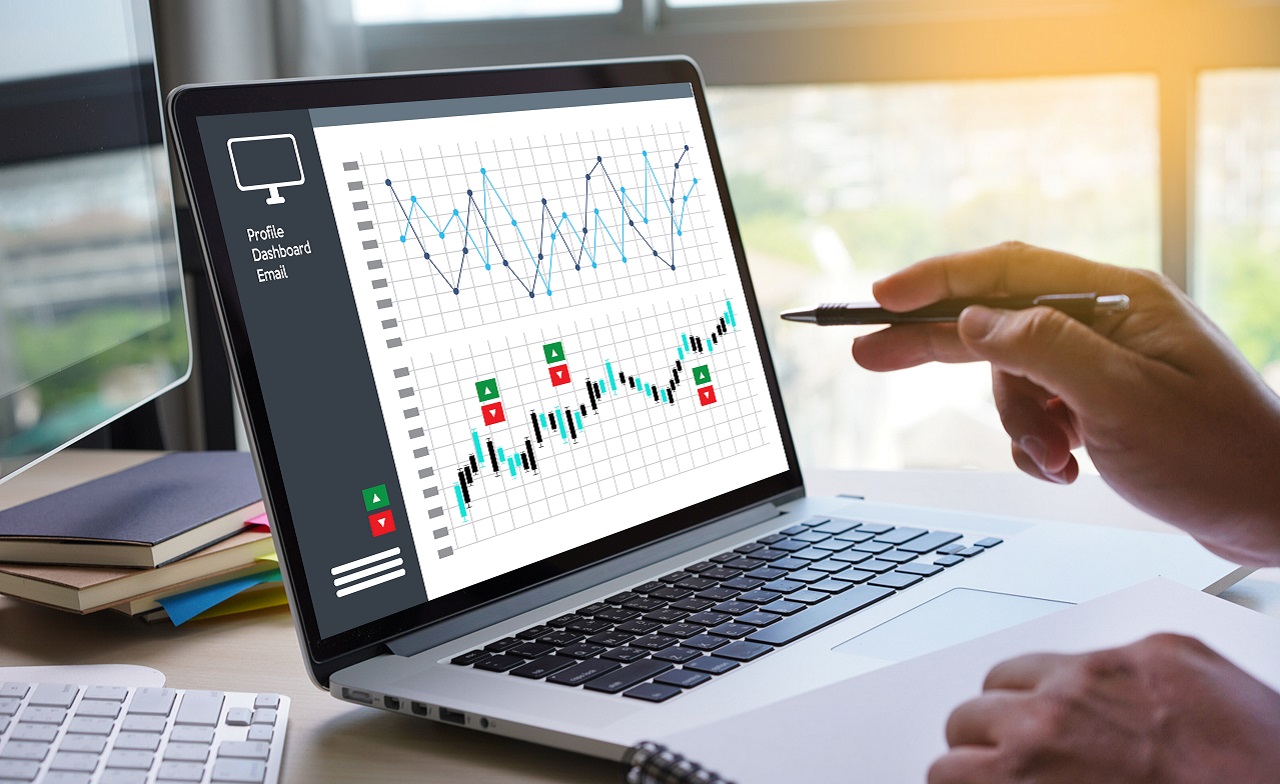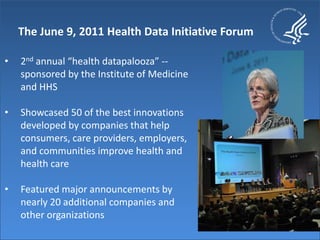
My Health My Data Act: Unleashing the Power of Consumer Health Data
The My Health My Data Act aims to give individuals control over their personal health data and ensure its secure storage and use for research and healthcare purposes. This legislation empowers individuals to easily access and manage their health data while promoting transparency and accountability in data handling practices.
It also emphasizes the importance of consent and provides guidelines for data anonymization to protect privacy. By implementing this act, individuals can make informed decisions about how their health data is used, fostering trust and advancing medical research. The My Health My Data (MHMD) Act is a groundbreaking legislation designed to address the growing concerns surrounding the collection, storage, and use of personal health data.
In the era of digital health records and widespread data sharing, individuals often have limited control over how their sensitive information is handled. This act recognizes the need to prioritize individuals’ right to privacy and control over their health data, while also acknowledging the potential benefits of sharing data for research purposes. By striking a balance between data protection and facilitating medical advancements, the MHMD Act aims to empower individuals and promote transparency in the healthcare ecosystem. This article will provide an overview of the key objectives and implications of the My Health My Data Act.
The Importance Of The My Health My Data Act
The My Health My Data Act holds significant importance in enhancing healthcare outcomes by leveraging data-driven insights. This act empowers individuals to take control of their health data, enabling them to make informed decisions about their well-being. By allowing individuals to access, manage, and share their health information securely, data-driven insights can be generated to improve patient care and personalized treatments.
The act promotes the exchange of data between healthcare providers, researchers, and patients, fostering collaboration and innovative healthcare solutions. With the patient at the center, the My Health My Data Act ensures privacy and security measures to protect sensitive health information.
By harnessing the power of data, healthcare professionals can gain valuable insights to improve diagnoses, treatment plans, and preventive strategies. Ultimately, the My Health My Data Act empowers individuals and transforms the healthcare landscape to deliver personalized and effective care based on data-driven insights.
Key Provisions Of The My Health My Data Act
The My Health My Data Act encompasses important provisions that protect individuals’ access and control over their personal health information. This legislation aims to promote data interoperability and standardization, ensuring that health data can be easily shared across platforms. By granting individuals the right to access and manage their own health information, this act empowers consumers to make informed decisions about their healthcare.
Moreover, it emphasizes the privacy and security of consumer health data, safeguarding sensitive information from unauthorized access or breach. With these key provisions in place, the My Health My Data Act intends to establish a robust framework that prioritizes individuals’ rights and fosters trust in the healthcare system.
It is a significant step towards transforming the way health data is handled and ensuring the protection of personal information.
Implications And Benefits Of The My Health My Data Act
The My Health My Data Act has significant implications and benefits for advancing medical research and innovation. By allowing individuals to have control over their health data, this legislation enables the seamless sharing of information among researchers and institutions. This promotes collaboration and accelerates the development of new treatments and therapies.
Additionally, the Act facilitates personalized healthcare by allowing doctors to access comprehensive patient data, leading to more accurate diagnoses and tailored treatment plans. Moreover, it fosters transparency and trust in the healthcare system by ensuring that individuals have a clear understanding of how their data is being used and protected.
Overall, the My Health My Data Act empowers patients, promotes scientific progress, and enhances the quality of care provided.
The Need For Strong Privacy Regulations
The My Health My Data Act underscores the pressing need for robust privacy regulations in the realm of digital health technologies. As healthcare data becomes increasingly digitized, the potential risks of unauthorized access and misuse of personal health information are on the rise.
This has raised significant concerns over privacy and security among individuals and organizations alike. Addressing these concerns is critical to safeguarding sensitive health data and ensuring that it is used responsibly and ethically. By implementing strong privacy regulations, we can protect individuals’ rights and prevent the unauthorized use or sharing of health data.
Such measures are essential to maintaining public trust in digital health technologies and enabling the widespread adoption of innovative healthcare solutions.
Safeguarding Consumer Health Data
Consumer health data must be safeguarded through the implementation of robust encryption and data protection measures. Stringent consent and authorization requirements form the foundation of this necessary protection. Healthcare organizations should prioritize securing sensitive data by utilizing advanced encryption techniques to prevent unauthorized access.
This ensures that personal health information remains confidential and protected from potential breaches. Moreover, implementing strict consent and authorization processes is crucial. Patients should be fully informed about the extent of data collection and have the right to give or withhold consent.
By establishing transparent and rigorous procedures, individuals’ privacy rights are respected and upheld. The My Health My Data Act emphasizes the significance of safeguarding consumer health data, promoting trust and security in the digital healthcare arena. By adopting these measures, healthcare organizations not only comply with regulatory requirements but also earn the confidence of patients by protecting their sensitive information.
Balancing Data Accessibility And Privacy Rights
The My Health My Data Act aims to strike a delicate balance between data accessibility and privacy rights. This legislation recognizes the pressing need to address the challenges associated with data sharing and access. It emphasizes the importance of ensuring that individuals have full control over the use of their data, which can only be done with their explicit consent.
By focusing on the individual’s ability to determine the fate of their personal information, this act seeks to establish a framework that respects privacy rights while still allowing for necessary data sharing. This way, individuals can have peace of mind knowing that their data is being handled responsibly and in compliance with their wishes.
By prioritizing privacy and consent, the My Health My Data Act acknowledges the crucial role data plays in healthcare while safeguarding individuals’ rights in the digital age.
Implementing The My Health My Data Act
Implementing the My Health My Data Act requires the development of secure infrastructure for data storage and sharing. Healthcare professionals and patients need to be educated about their data rights. This legislation aims to protect sensitive health information and empower individuals to have more control over their own data.
The focus is on creating a system that ensures privacy and security, while also enabling seamless access and sharing of pertinent health information when authorized. The implementation will require the collaboration of various stakeholders, including government bodies, healthcare providers, and technology experts.
By establishing a strong foundation for data privacy and education, the My Health My Data Act can pave the way for a more patient-centric healthcare system where individuals are actively involved in managing their own health data.

Credit: www.slideshare.net
Collaborating Across Stakeholders
Collaborating across stakeholders is crucial for the implementation of the My Health My Data Act. Engaging government agencies, healthcare providers, and technology companies is essential in ensuring the success of this act. By bringing these diverse groups together, industry standards and best practices for data governance can be created.
This collaboration will enable the development of guidelines that protect the privacy and security of health data while promoting innovation and data sharing. Government agencies can provide regulatory oversight, healthcare providers can contribute their expertise, and technology companies can bring their technical knowledge to the table.
By working together, these stakeholders can address the challenges of data governance and drive the adoption of effective solutions that benefit both patients and the healthcare industry as a whole.
Monitoring And Enforcement Of Consumer Health Data Rights
Monitoring and enforcing consumer health data rights requires the establishment of regulatory bodies and oversight mechanisms. These bodies would be responsible for ensuring that organizations comply with data protection regulations and safeguard consumer health data. Penalties for non-compliance and data breaches must be enforced to deter potential violations and promote accountability.
The My Health My Data Act aims to address these concerns and protect individuals’ health data. By holding organizations accountable and establishing strict consequences for unauthorized data usage or breaches, this act aims to ensure the privacy and security of consumer health information.
With the implementation of robust monitoring and enforcement measures, individuals can have peace of mind knowing their data is protected and that their rights are being upheld.
Conclusion
The My Health My Data Act is a crucial step towards protecting our personal health data in the digital age. By establishing clear rules and safeguards, this legislation aims to ensure that individuals have control over their own health information.
With the advancement of technology and the increasing use of electronic health records, it is more important than ever to have legislation in place that addresses the privacy and security concerns surrounding our data. The Act emphasizes the need for meaningful consent, transparency, and accountability from healthcare providers and third-party entities that handle our data.
By empowering individuals with the ability to access, manage, and share their health information, this legislation not only protects our rights but also promotes research and innovation in the healthcare field. As we move forward, it is crucial for policymakers, healthcare providers, and technology companies to work together in implementing the My Health My Data Act and ensuring that our personal health data remains protected now and in the future.



